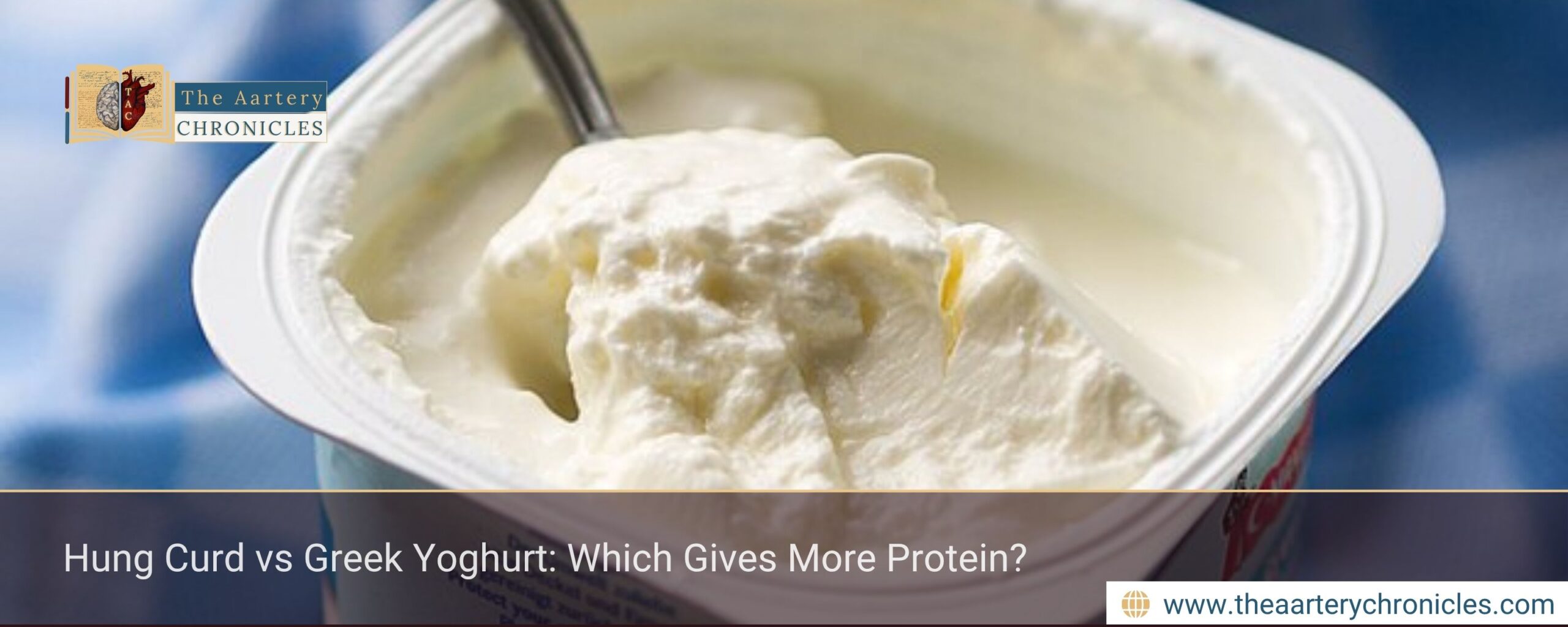

Hung Curd vs Greek Yoghurt: Which Gives More Protein?
In today’s fitness-driven world, protein has become the ultimate buzzword. From gym trainers to nutrition coaches, everyone seems to be promoting high-protein diets for better health and muscle recovery. Among these sources, Greek yoghurt has gained popularity as a protein-rich option. But a recent viral post has triggered a heated discussion online: Is hung curd a cheaper alternative to protein-packed Greek yoghurt, or are they too different to compare?
The Viral Claim: “Why Pay So Much for Protein?”
A doctor’s post on X recently went viral after she questioned the growing “protein obsession” in India. She argued that many food companies are cashing in on the protein trend by selling products like Greek yoghurt and high-protein snacks at inflated prices.
According to her, homemade hung curd simply made by straining regular curd (dahi) in a cotton cloth can serve as an affordable and healthy substitute. She wrote that while branded Greek yoghurt can cost anywhere between ₹70 and ₹300 per cup, hung curd can be prepared at home for less than half the price.
The doctor added, “Strain your regular dahi, and your hung curd is ready. Add dry fruits, nuts, or seeds for extra protein and healthy fats.”
Internet Divided: Taste, Texture, and Nutrition
However, not everyone agreed. Many users online pointed out that Greek yoghurt and hung curd aren’t identical, especially in terms of texture, bacterial culture, and protein content.
One user noted, “Greek yoghurt has a unique tangy taste and creamy consistency that works perfectly in desserts and breakfast bowls. Hung curd, on the other hand, is thicker but less smooth.”
Another person highlighted the difference in fermentation and bacterial strains, explaining that Greek yoghurt undergoes a specific culturing process that gives it its signature texture even in low-fat versions. They argued that calling hung curd a direct substitute might spread misinformation.
Supporters Say Simplicity Wins
Despite the criticism, many agreed with the doctor’s viewpoint. Supporters argued that homemade curd and hung curd have been traditional staples in Indian diets for generations, long before Greek yoghurt became popular.
One comment read, “Where was Greek yoghurt 20 years ago? We all grew up eating curd, and it worked just fine for health and digestion.”
Proponents also emphasised that for most people, balanced nutrition and affordability matter more than brand labels. As long as the diet includes sufficient protein from various sources like curd, pulses, eggs, or nuts, there’s no need to overspend on imported or branded yoghurt.
Expert View: Similar, But Not the Same
From a nutritional standpoint, both products have their benefits. Greek yoghurt generally contains more protein (8–10g per 100g) compared to hung curd (5–7g per 100g), due to its concentrated processing. However, hung curd still offers probiotics, calcium, and good fats, making it a healthy option for everyday use.
Experts suggest choosing based on one’s budget, taste preferences, and dietary goals. If you’re an athlete or need a high-protein snack, Greek yoghurt may fit better. For family meals or homemade recipes, hung curd is a perfectly good and economical choice.
Conclusion
So, is hung curd a cheaper alternative to protein-packed Greek yoghurt? The answer depends on what you value more: cost or concentrated protein.
While Greek yoghurt delivers higher protein and a creamier taste, hung curd remains a nutritious, probiotic-rich, and wallet-friendly substitute. For most households, especially in India, straining curd at home can easily meet daily nutrition needs without breaking the bank.
Source: Inputs from various media Sources
I’m a pharmacist with a strong background in health sciences. I hold a BSc from Delhi University and a pharmacy degree from PDM University. I write articles and daily health news while interviewing doctors to bring you the latest insights. In my free time, you’ll find me at the gym or lost in a sci-fi novel.
- Priya Bairagi
- Health News and Updates,People Forum
- 4 October 2025
- 22:00








